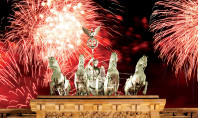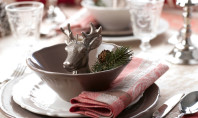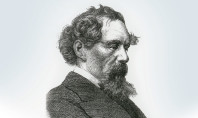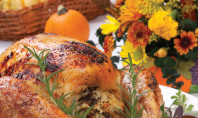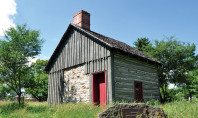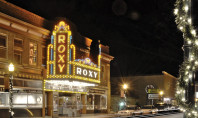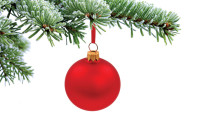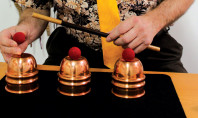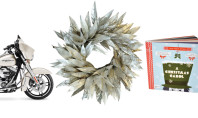Chrismukkah
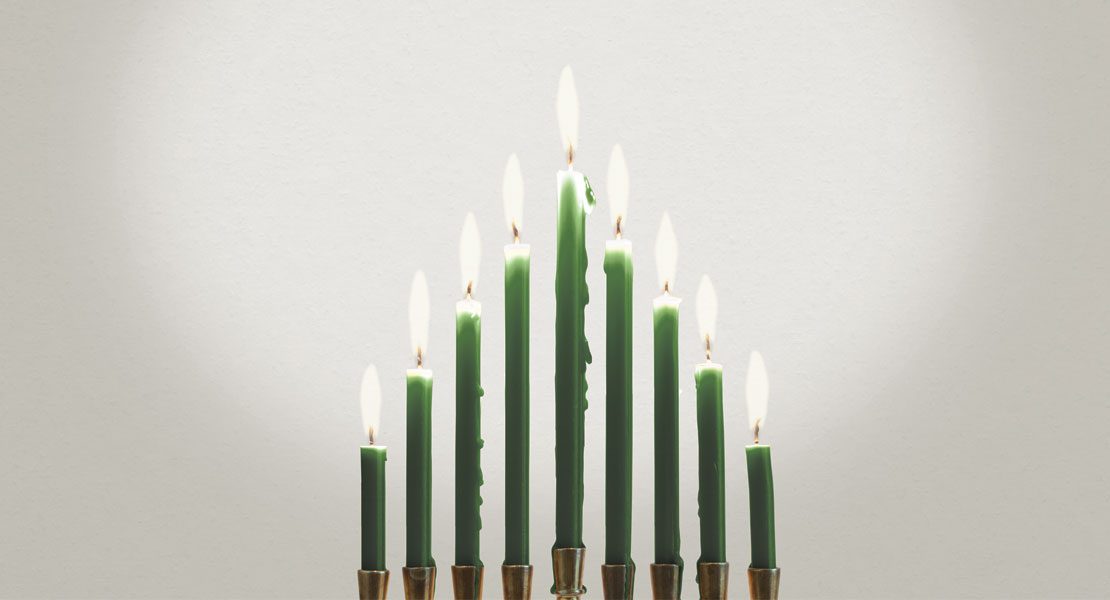
By Sara Vigneri
Hanukah is probably the least stressful holiday on the Jewish calendar, in my opinion. My plan for Hanukah is simple: buy candles, light menorah, say a blessing, done!
It’s nothing compared to the endless cooking, cleaning, hosting and sitting in synagogue that goes on during the Rosh Hashana or Passover. But for Jews living in interfaith families, Hanukah is much more complicated because it raises bigger issues of combining traditions and figuring out how to celebrate the winter holiday season together.
According to Interfaith Community (IFC), a group which focuses on helping Jewish-Christian families combine their faiths, as many as 50 percent of Jews are marrying people from other backgrounds, and mostly Christians. As our society grows more tolerant of all types of marriage, it’s no surprise that we would see more interfaith marriages as well.
But part of this increase may be due to a shift in Jewish attitudes toward conversion. According to Sylvia Barack Fishman, Ph.D., professor of Contemporary Jewish Life at Brandeis University, concerns about Christians feeling pressured into converting for marriage has led many Rabbis to steer away from conversion and instead encourage couples to retain their own faiths. In the Lehigh Valley, several synagogues actively work to make interfaith couples feel comfortable and welcome at their services and provide programming to help them navigate Judaism together despite their different backgrounds.
Dr. Fishman also notes that modern Jewish parents are much less concerned about their children marrying non-Jews, breaking a long-standing taboo within the Jewish community regarding interfaith marriage. “Intermarriage is now the new cultural norm,” she explains. “People who try to encourage single Jews to marry Jews are looked at as being prejudiced and sometimes even racist.” But as the pressure to marry exclusively within one’s faith is easing up, the challenge of what it means to merge two distinct re- ligious traditions gains significance.
For chil- dren of interfaith couples, the opportunity to celebrate two winter holidays is like winning the toy jackpot – eight days of Hanukah gifts segues into the gift-giving frenzy of Christmas. Kerri Nigito of Allentown has fond memories of her younger years celebrating Jewish and Christian holidays. “I loved getting little gifts each night of Chanukah and bigger gifts for Christmas,” says Nigito, whose mother is Jewish and father is Catholic. “I also really looked forward to Passover seder with my Jewish grandparents.”
But as she got older, she became aware that melding traditions diluted the impact of either religion. When Nigito was about 9 years old, she started questioning what it means to be Jewish or Catholic. “Until then, I assumed everyone celebrated both holidays,” she said. So she started asking her parents questions about the two faiths in hopes of ironing out a religious identity. “I became curious about the differences between the religions and honestly felt a little confused about who I was and how I fit in,” she explains. “I ended up going to Catholic school and now I see myself as Catholic. But I still enjoy celebrating Jewish holidays and always try to find a Passover seder each year to attend with my grandparents.”
That’s why groups like IFC try to create programming that explores both religions on a deeper level in hopes of allowing interfaith families to draw a more meaningful connection to both Judaism and Christianity. For example, they are planning an Advent/Christmas Service followed by a Hanukkah celebration led by clergy and they also plan services for Rosh Hashana, Passover and Easter. It’s not just about hanging dreidels on a Christmas tree, they are trying to teach both faiths and observe both traditions fully. This is not always easy, as the tenets taught by each religion don’t always meld. For example, how do you teach your children about Jesus from both a Christian and Jewish perspective without completely contradicting yourself?
Dr. Fishman suggests that the best solution is to just pick one faith to adhere to. Others opt to create traditions as a secular exploration of both faiths. But according to Lee Gruzen’s book ‘Raising your Jewish-Christian Child’ one of the most important things you can do is to build a relationship with your child based on honest information. “Our children want to know where we stand, how we really feel about these moral and religious subjects we’re talking about,” she explains. “They want to see the sources of our strength, and they want to see how we put our faith to use.” And while that doesn’t offer solid advice on how to explore a relationship with God from two different religious perspectives, it suggests that explaining your own struggles with the subject might be better than avoiding the topic altogether.
And winter is a wonderful season to test the waters of interfaith traditions. You don’t need deep discussions about religious beliefs to enjoy lighting the menorah or setting up a Christmas tree. In fact, the word Chrismukkah has made it into popular culture – teen show The O.C. featured a character named Seth who had a Christian mother and Jewish father and they celebrated both holidays by calling it Chrismukkah. “There were also a lot of people who said, ‘Oh! I celebrate Hanukkah and Christmas,” explained The O.C. creator Josh Schwartz to the Huffington Post. “My parents are interfaith and now, I can call it Chrismukkah.’ So it gave name to something a lot of people were experiencing, but they didn’t really know what to call it.”


